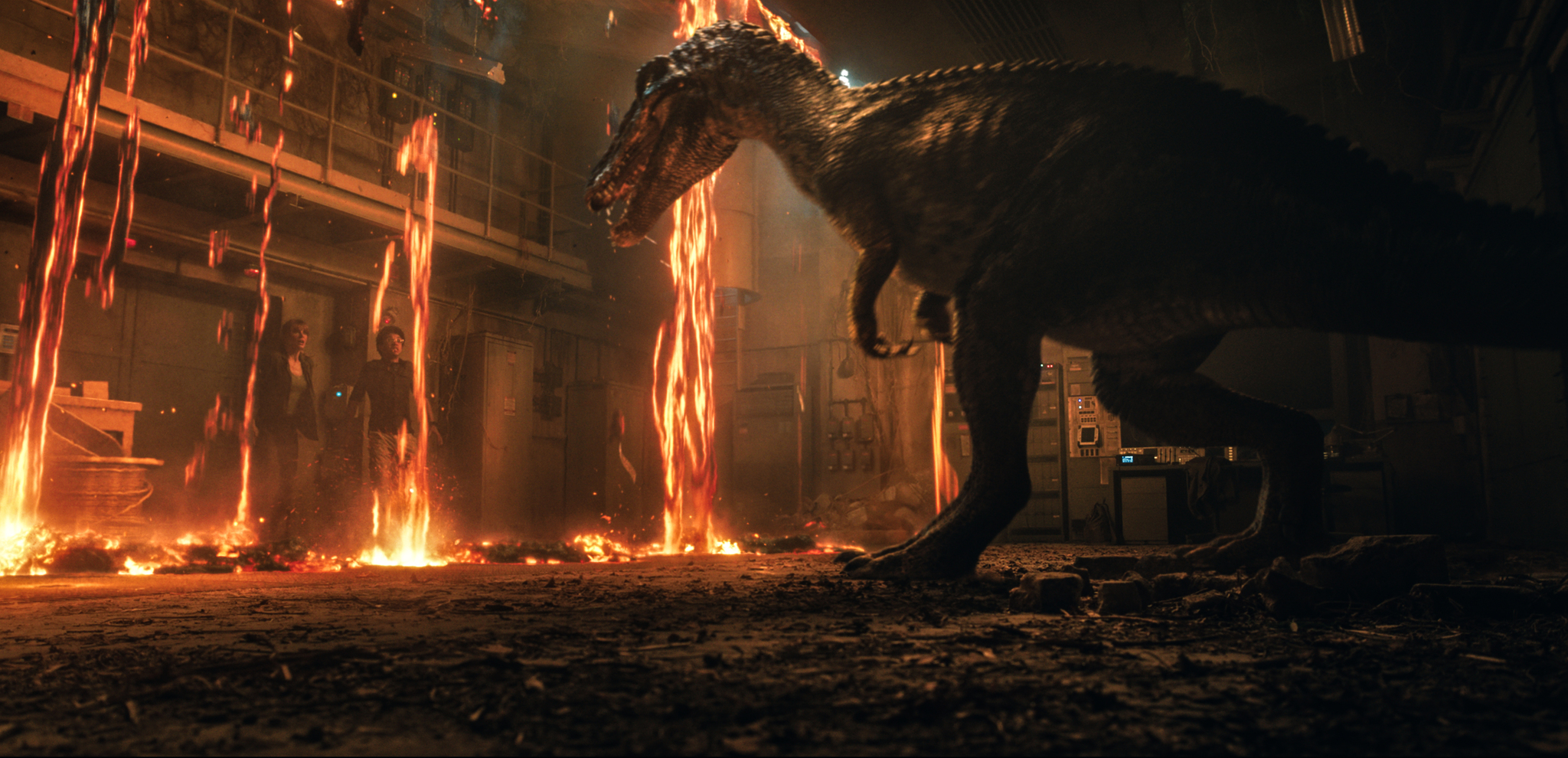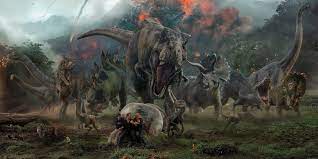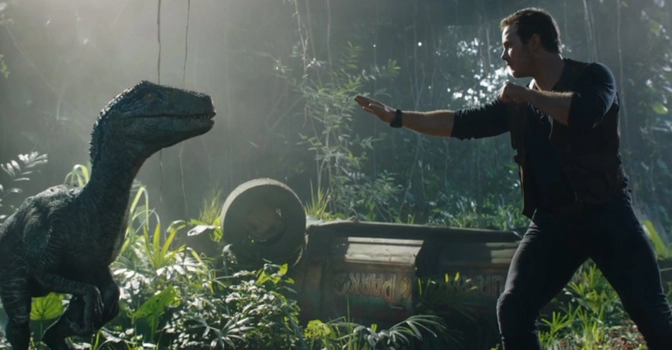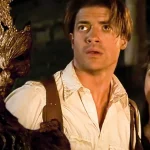Jurassic World: Fallen Kingdom (2018)

Jurassic World: Fallen Kingdom (2018): A Thrilling Yet Controversial Dinosaur Adventure
Directed by J.A. Bayona, Jurassic World: Fallen Kingdom (2018) is the fifth installment in the Jurassic Park franchise and the sequel to 2015’s Jurassic World. The film ventures into new territory with a blend of action, suspense, and moral dilemmas, expanding the series’ scope beyond the confines of Isla Nublar. While it delivers breathtaking visuals and heart-pounding sequences, it also polarizes audiences with its narrative choices and tonal shifts.
The Plot: Rescuing Dinosaurs Amid Chaos
The story picks up three years after the events of Jurassic World. Isla Nublar, home to the resurrected dinosaurs, faces destruction due to an impending volcanic eruption. Claire Dearing (Bryce Dallas Howard), now an advocate for dinosaur rights, teams up with former park trainer Owen Grady (Chris Pratt) to save the creatures. Their mission, funded by the mysterious Benjamin Lockwood (James Cromwell) and his assistant Eli Mills (Rafe Spall), takes a dark turn when they discover a conspiracy to exploit the dinosaurs for profit.
As the narrative shifts from Isla Nublar to Lockwood’s secluded estate, the film transitions into a gothic-style thriller. Here, the genetically engineered Indoraptor—a terrifying hybrid dinosaur—takes center stage, leading to a tense battle for survival that forces the characters to confront the ethical implications of cloning and genetic manipulation.
Chris Pratt and Bryce Dallas Howard: Returning Heroes
Chris Pratt reprises his role as Owen Grady, bringing his signature charm and humor to the film. Owen’s bond with Blue, the intelligent velociraptor, provides emotional weight and showcases the complexity of human-dinosaur relationships. Bryce Dallas Howard delivers a more evolved portrayal of Claire, transforming from a corporate figure to a passionate advocate for the creatures she once commodified.
New Characters and Performances
The film introduces several new characters, including Zia Rodriguez (Daniella Pineda), a fiery paleo-veterinarian, and Franklin Webb (Justice Smith), a tech-savvy yet timid systems analyst. While they add diversity and humor, their roles are largely secondary to the main narrative. Rafe Spall’s Eli Mills is an effective, albeit predictable, antagonist whose greed and deception drive much of the conflict.
Isabella Sermon, as Lockwood’s granddaughter Maisie, delivers a compelling performance that adds a surprising emotional twist to the story. Maisie’s character introduces a subplot involving human cloning, a bold move that expands the franchise’s thematic scope.
Themes: Ethics, Exploitation, and Evolution
Jurassic World: Fallen Kingdom delves into ethical dilemmas surrounding cloning, genetic engineering, and humanity’s responsibility toward creatures it has created. The film questions the morality of resurrecting extinct species and explores the consequences of corporate greed and scientific hubris. The decision to release the dinosaurs into the wild at the film’s climax serves as a provocative commentary on coexistence and survival.
Action and Visuals: A Cinematic Spectacle
J.A. Bayona brings his horror sensibilities to the franchise, crafting scenes filled with tension and atmospheric dread. The volcanic eruption on Isla Nublar is a visual masterpiece, blending chaos and heartbreak as dinosaurs struggle to escape the lava. The film’s second half, set within the gothic confines of Lockwood’s estate, offers a darker, more intimate take on dinosaur terror, reminiscent of classic monster movies.
The Indoraptor, the latest genetically engineered predator, is a chilling creation. Its scenes are staged with precision, using lighting and sound to heighten suspense. The filmmakers balance grandiose action with quieter moments, such as Owen and Blue’s reunion, to maintain an emotional connection.
Criticism: A Divisive Narrative
While Fallen Kingdom excels in spectacle, its plot has drawn criticism for its logical inconsistencies and reliance on familiar tropes. The premise of auctioning dinosaurs to global arms dealers feels contrived and detracts from the franchise’s core themes. Additionally, some fans lament the reduced focus on Isla Nublar and the park setting, staples of the series.
The film’s bold narrative choices, particularly the introduction of human cloning, divide opinion. While some view it as an intriguing expansion of the franchise’s scope, others see it as an unnecessary departure from the original premise.
Legacy and Setup for the Future
The film’s ending sets the stage for a new era in the Jurassic saga. By releasing the dinosaurs into the wild, it paves the way for a world where humans and prehistoric creatures must coexist. This paradigm shift promises fresh storytelling opportunities but also raises questions about the franchise’s direction.
Conclusion: A Bold Yet Flawed Entry
Jurassic World: Fallen Kingdom is a visually stunning and ambitious installment that takes the franchise in a new direction. While it stumbles in its execution of certain plot elements, it succeeds in delivering thrilling action and thought-provoking themes. For fans of the series, it offers a mix of nostalgia and novelty, even as it challenges traditional expectations.
Key Takeaways
- Spectacular Visuals: The volcanic eruption and gothic horror sequences showcase J.A. Bayona’s directorial prowess.
- Emotional Depth: The bond between Owen and Blue provides heart amid the chaos.
- Bold Themes: The film tackles ethical questions about cloning and genetic manipulation.
- Divisive Choices: Narrative risks, such as human cloning and the dinosaur auction, have sparked mixed reactions.
- A New Era: The ending sets the stage for a world where dinosaurs and humans coexist.
#JurassicWorldFallenKingdom #ChrisPratt #BryceDallasHoward #DinosaurAdventure #JurassicParkFranchise #Indoraptor #2018Movies










